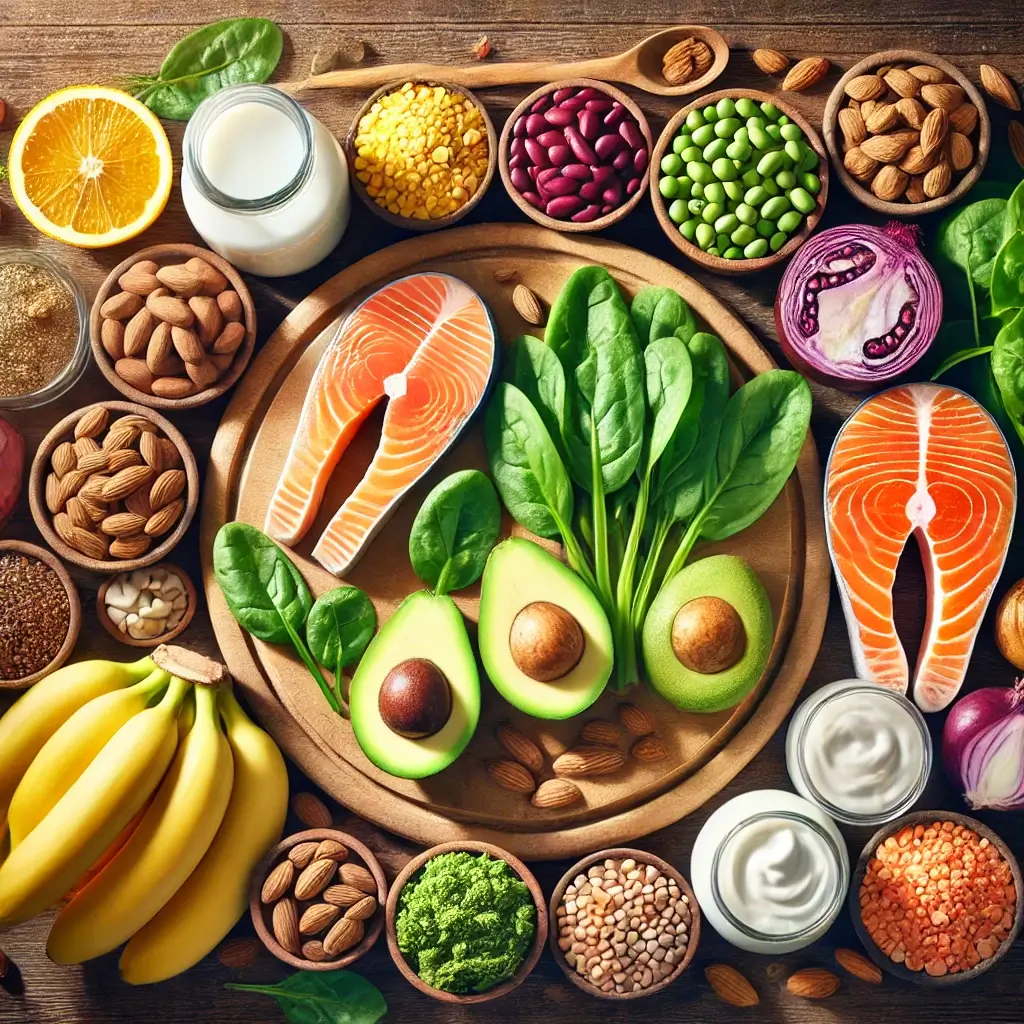Introduction
In today’s fast-paced world, maintaining a balanced diet is essential for overall health. Among the many important nutrients, potassium (K) stands out as a key mineral that plays a crucial role in maintaining normal body functions. It helps regulate blood pressure, muscle contractions, nerve signals, and even supports kidney function.
However, many people do not get enough minerals in their daily diet, leading to potential health risks such as fatigue, muscle weakness, and irregular heartbeats. In this article, we’ll explore why potassium-rich foods are essential, their benefits, and 12 of the best sources to include in your meals.
What is Potassium and Why is It Important?
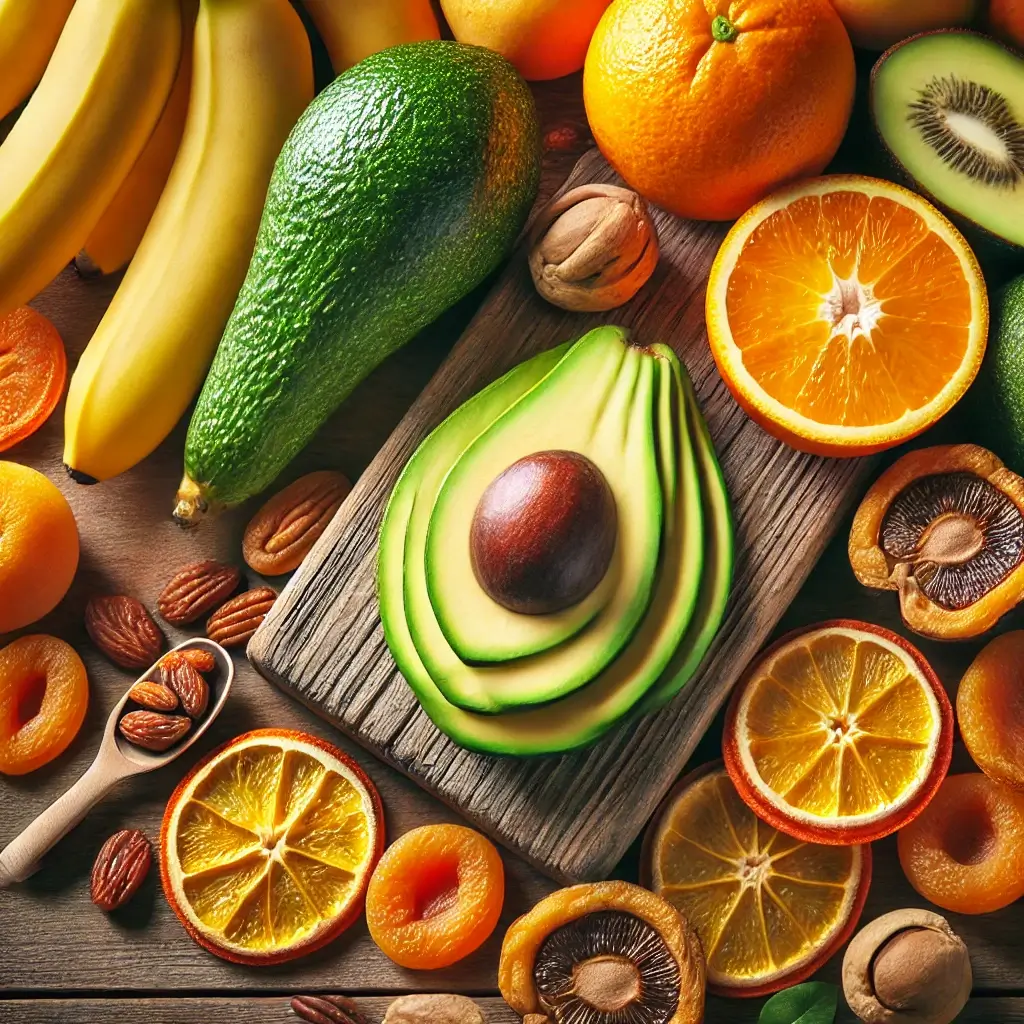
What Does Potassium Do in the Body?
The mineral is an essential electrolyte that helps maintain proper fluid balance, nerve function, and muscle contractions. It also works alongside sodium to regulate blood pressure and prevent excessive water retention.
Signs of Potassium Deficiency
A lack of potassium in the body, known as hypokalemia, can cause several health problems, including:
✅ Fatigue & Weakness – Due to inefficient muscle contractions.
✅ Muscle Cramps & Spasms – Caused by electrolyte imbalances.
✅ Irregular Heartbeat – helps maintain a steady heart rhythm.
✅ Digestive Issues – Low levels can slow digestion.
How Much Do You Need Daily?
The recommended daily intake (RDI) of (K) varies by age and health condition:
- Adults: 2,500–3,000 mg
- Children: 1,000–2,000 mg
- Athletes: Up to 4,700 mg due to high physical exertion.
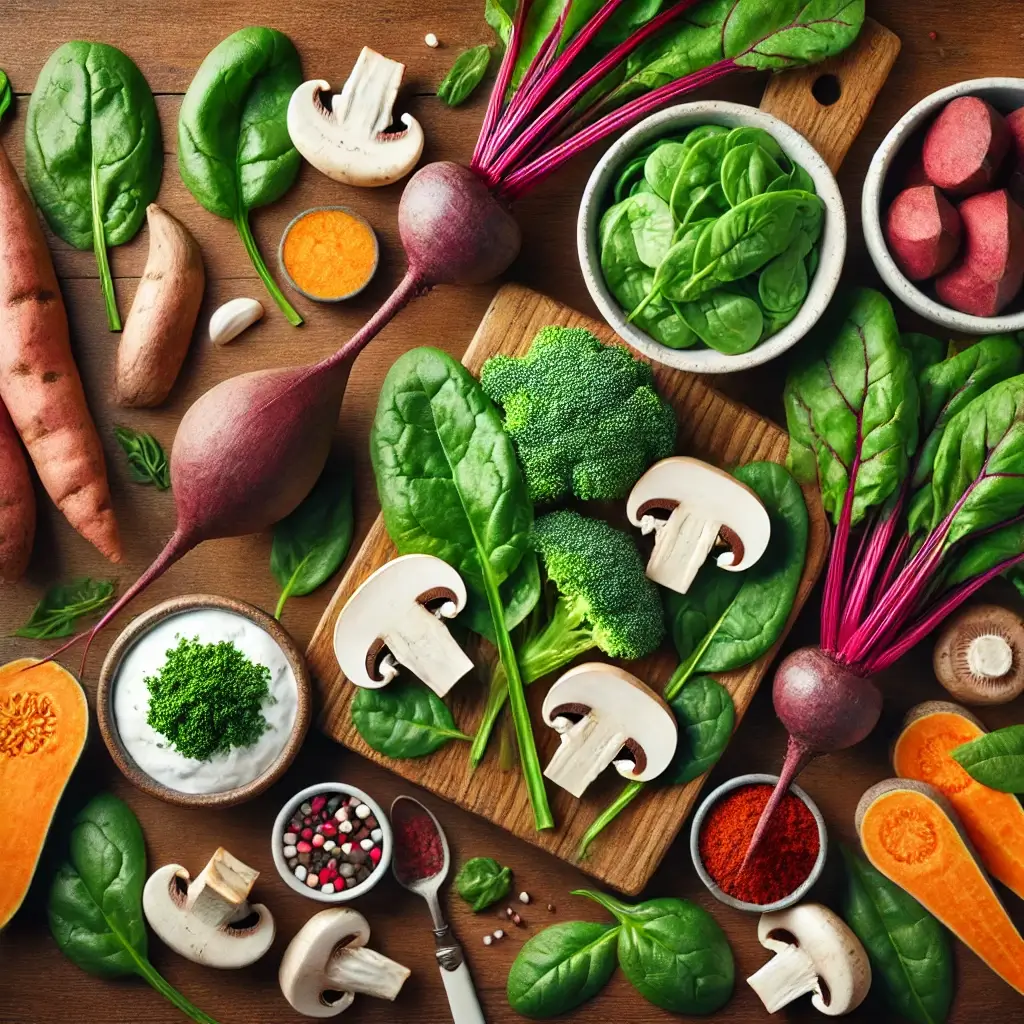
Health Benefits of Potassium-Rich Foods
Eating potassium-rich foods can significantly enhance your health in various ways:
✅ Helps Regulate Blood Pressure – Counteracts sodium’s effects, reducing hypertension risk.
✅ Supports Muscle Function & Prevents Cramps – Athletes and active individuals need more levels for muscle recovery.
✅ Aids in Hydration & Electrolyte Balance – Works with sodium and magnesium to regulate fluid levels.
✅ Boosts Kidney Function & Heart Health – Supports efficient kidney filtration and maintains a normal heartbeat.
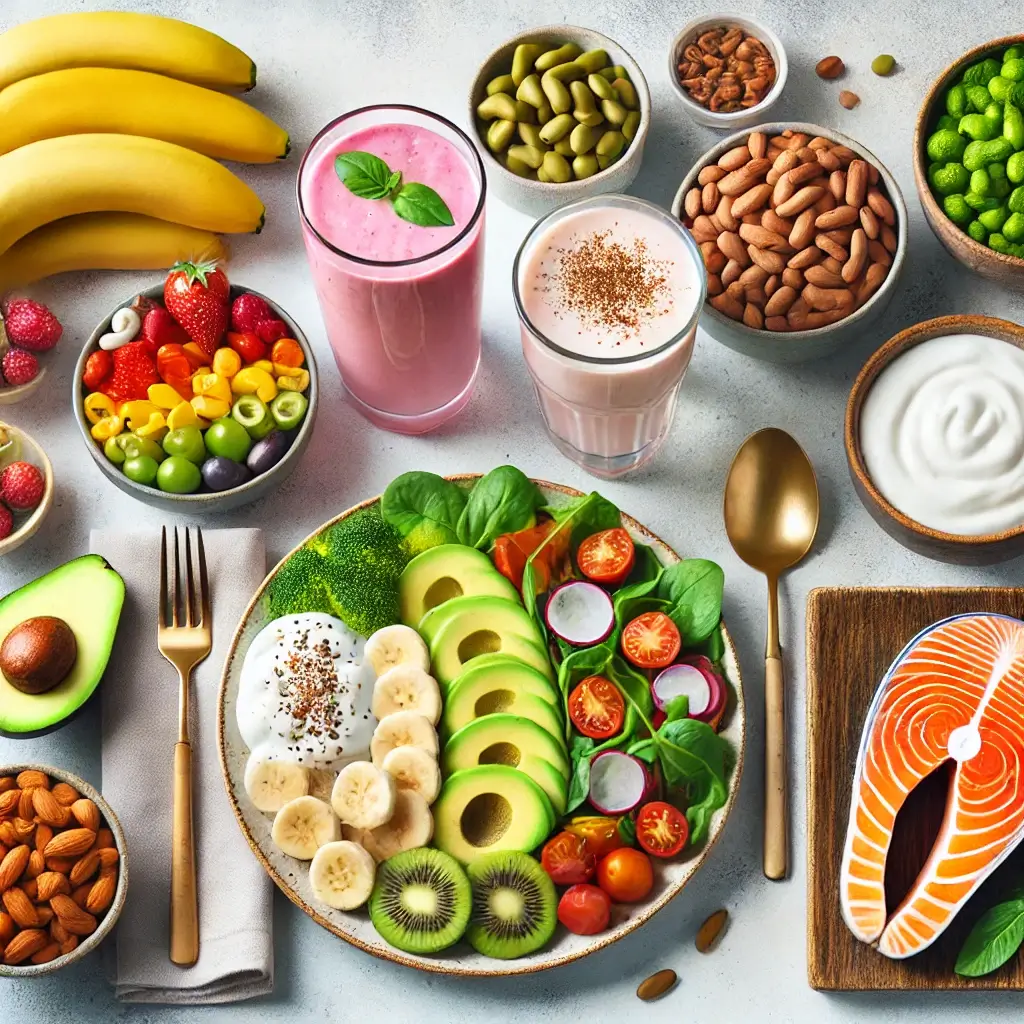
Top 12 Potassium-Rich Foods You Should Be Eating
1. Potassium-Rich Fruits 🍌
Fruits are some of the best sources of natural potassium, providing hydration and essential nutrients.
- Bananas – The most well-known source, ideal for post-workout recovery.
- Avocados – Packed with healthy fats for heart health.
- Oranges – Excellent for hydration and boosting immunity.
2. Potassium-Packed Vegetables 🥦
Vegetables are fiber-rich and provide long-lasting energy while supplying potassium.
- Spinach – A leafy green powerhouse full of potash and iron.
- Sweet Potatoes – Contains more than white potatoes, plus fiber for digestion.
- Beets – Supports blood circulation and detoxification.
3. Protein & Legumes High in Potassium 🥩
Protein-rich foods also serve as excellent sources.
- Salmon – Combines omega-3 fatty acids for heart health.
- Beans – Fiber, protein, and mineral make them a superfood.
- Lentils – A plant-based powerhouse that fuels energy levels.
4. Nuts, Seeds & Dairy Sources 🥛
Some dairy and nuts contain significant levels and other essential minerals.
- Yogurt – Supports gut health while being rich.
- Almonds – Contains healthy fats and magnesium, perfect for snacking.
- Pumpkin Seeds – A nutrient-dense option for boosting intake.
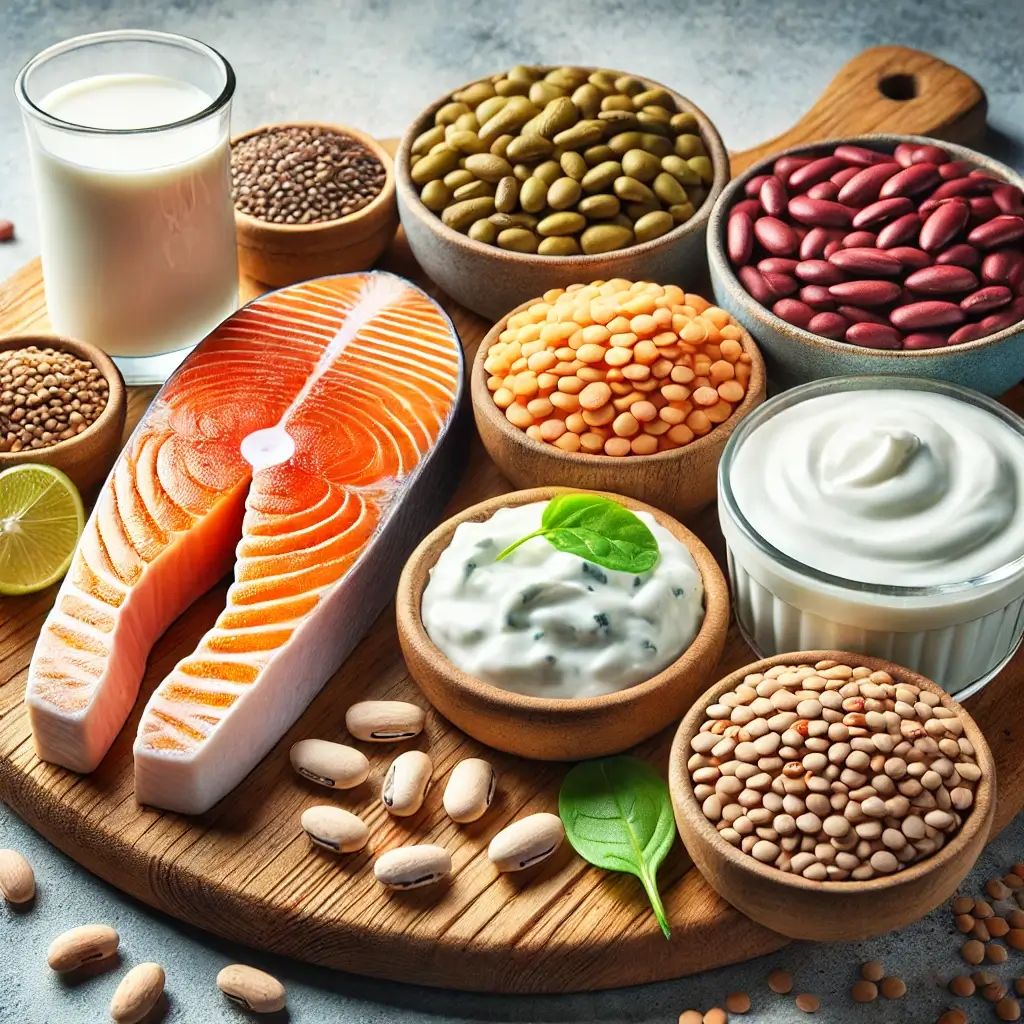
How to Incorporate More Potassium into Your Diet?
If you’re not getting enough minerals, here are easy ways to boost your intake:
🥤 Start your day with a banana smoothie – Blend banana, yogurt, and spinach for a potassium-packed breakfast.
🥗 Add spinach and avocado to your salads – A tasty way to increase nutrient intake.
🥔 Swap regular potatoes for sweet potatoes – A simple way to double your intake.
🍽 Snack on almonds, pumpkin seeds, or yogurt – Quick and easy rich snacks.
Are There Any Risks of Consuming Too Much Potassium?
While this mineral is essential, excessive intake can lead to a condition called hyperkalemia, which can be dangerous for certain individuals.
Hyperkalemia: What Happens When You Consume Too Much?
When potassium levels are too high, it can cause:
⚠ Irregular heartbeat – A serious risk for individuals with heart disease.
⚠ Nausea or Weakness – Due to an imbalance in electrolytes.
⚠ Kidney Problems – People with chronic kidney disease should limit intake.
Who Should Limit Their Intake?
- Individuals with kidney disease.
- Those taking certain blood pressure medications.
- People with heart conditions.
Balance is Key: How to Ensure You Get the Right Amount?
- Prioritize natural food sources over supplements.
- Consult with a doctor if you have any health conditions.
- Avoid excessive intake from processed foods.
Conclusion: The Key to a Healthy Diet is Balance
Potassium is an essential nutrient that supports heart health, muscle function, and hydration. By incorporating potassium-rich foods such as bananas, spinach, salmon, and yogurt into your meals, you can improve your overall well-being.

